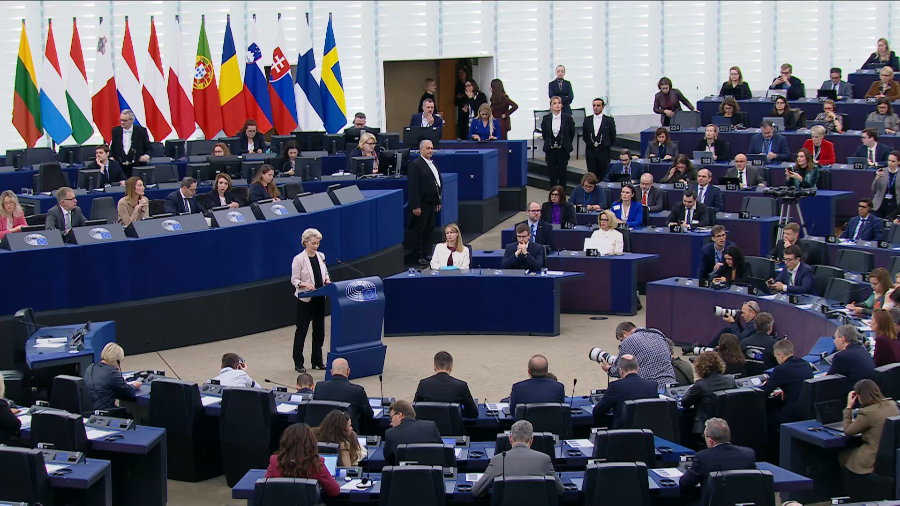Brussels – With the new European Commission set to take office, one can already think about the new EU political course. President Ursula von der Leyen is already looking ahead to the next five years of work. The priorities on her personal agenda, starting from December 1 college, are there, and one of them concerns the defence industry. In asking for confidence for her team, she promises, “within the first 100 days“, a white paper on defence to revitalize the industry and business and reshape European aspirations.
“Strengthening the defence industrial base,” “Joint European projects on defence,” and again “Improving our military mobility.” These are all necessities that become commitments for von der Leyen, also in light of a Russian-Ukrainian war that continues in the wake of policies of aggression fueled by clear-cut choices, in the face of which the EU is struggling. “Russia is spending up to 9 per cent of its Gross Domestic Product on defence, Europe is spending an average of 1.9 per cent,” stresses a concerned EU Commission chairwoman.
The revitalization of the defence industry is no longer postponable and boils down to one big collective effort: “Our defence spending must increase.” It is on this program that the new Commission will work, with a commissioner in charge, Andrius Kubilius, and a whole team called to a new effort. The industry in the sector welcomes announcements and intentions of the chair of the EU executive positively and is already offering openness and contribution to the discourse.

“This initiative comes at a critical time, in time to shape the upcoming negotiations on the EU’s next multiannual financial framework and to enshrine the importance of European defence,” comments ASD-AeroSpace and Defence Industries Association of Europe, the association of European defence industries. From the industry world comes first a suggestion: overcoming national divisions. Because, they point out, “the defence industry serves first and foremost the needs of the armed forces, and for this reason, the EU’s defence industrial policy “must ultimately be guided by the defence planning of member states, in which capability goals and operational requirements are defined.”
Then, the exquisitely financial advice. “The EU defence investment budget should be at least €100 billion in the next multi-year budget (MFF 2028-2034).” Since the next EU budget will not be in force before 2028, while we need to start pressing on the accelerator immediately, the spending effort should be increased right away. In fact, Asd acknowledges, “there is little hope that Europe’s security environment will improve in the next three years.”
To stimulate production, you need orders, which national governments have to get going. You need contracts since the defence industry sells not to individuals but to countries. With Russia continuing its war in Ukraine, China flexing its muscles on Taiwan, and tensions in the Middle East, you have to change the way you think about things. “During the Cold War, Europeans regularly spent more than 3 per cent of their Gross Domestic Product on defence,” ASD reminds.“Considering the current security environment, a similar effort would likely be needed in the near future to ensure a minimum degree of defence readiness and deterrence capabilities.”
English version by the Translation Service of Withub







